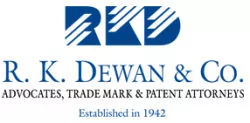Creativity in trademarks is the key to successful trademark registration as well as gaining recognition among the consumers. While it is important that a mark should represent the Company/proprietor, it is also necessary that the name should be distinctive enough to not be copied. An arbitrary or fancy mark tends to have a stronger protection because in the event that a third party copies the same, it will be difficult to justify such adoption. In the case of Datamatics Global Services Limited vs Royal Datamatics Private Limited, the consequence of adopting an unimaginative mark was borne by the Plaintiff. The Plaintiff (Datamatics Global) was running its business, in 1975, under the name ‘Datamatics’ which it claimed to be a coined word and therefore, exclusive to the Plaintiff alone. Further, the Plaintiff submitted that it had registered the trademark ‘Datamatics’ in classes 35 and 42. The Plaintiff, in 2013 became aware of the Defendant’s presence and sent a cease and desist notice; on failure to receive a positive response from the Defendant, the Plaintiff filed a trademark infringement suit.
The Defendant claimed that the word ‘Datamatic’ was ordinarily used in relation to IT goods and services and that close to 50 Companies had Datamatics as a part of their corporate name. This argument was accepted by the Bombay High Court; it was observed by the Court that the mark was an obvious combination of the words ‘Data’ and ‘Matic’. Interestingly, the Court also relied upon the class of consumers to whom the goods and services were directed. It was held that since the consumers purchasing IT goods and services constituted a knowledgeable class, they would make choices on the basis of the “specialized services offered by the service providers rather than the word ‘Datamtics’” alone. Also, the fact that the Defendant had applied for registration of the mark ‘Royal Datamatics Pvt. Ltd.’, as a whole, rather than ‘Datamatics’ was seen in favorable light by the Court. In its parting words the Court stated that the Defendant had been operating under the said corporate name for 19 years therefore, granting a temporary injunction in favor of Plaintiff would be harmful for the Defendant. Thus, the Court did not grant an injunction to the Plaintiff.
This case throws light on the importance of IP vigilance for Corporates; simply registering trademarks does not make the corporate houses immune to any potential infringement. It is necessary that Companies, act vigilantly and immediately take action against any entity that may be treading upon their IP rights.
The content of this article is intended to provide a general guide to the subject matter. Specialist advice should be sought about your specific circumstances.


